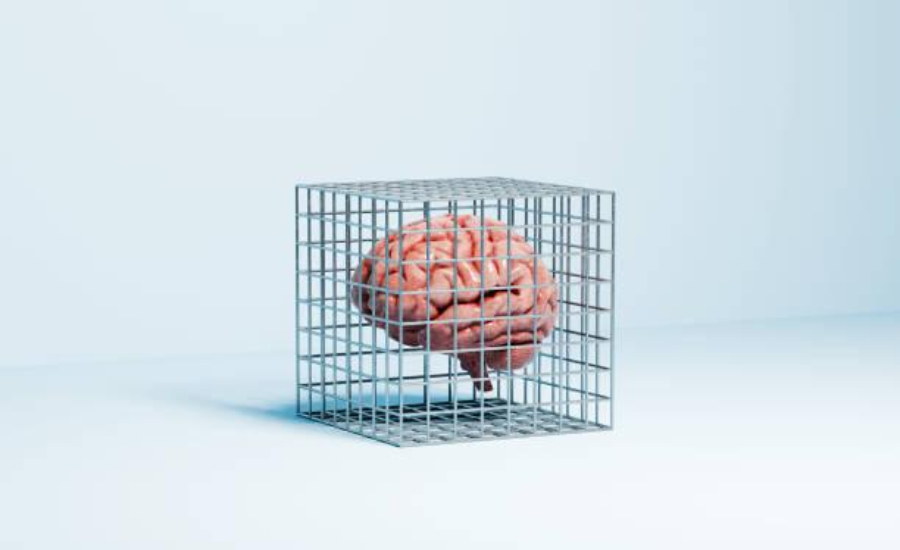How Chemical Imbalances Affect Mental Health
When we talk about mental health, there’s often a mention of chemical imbalances in the brain. But what exactly does that mean? Chemical imbalances and mental health are deeply connected, and understanding this relationship can help us grasp the complex factors that contribute to mental health disorders. In this article, we’ll explore how chemical imbalances affect mental health, and delve into the common symptoms that may indicate something’s off-balance in your brain chemistry.
What Are Chemical Imbalances in the Brain?
Your brain relies on a delicate balance of chemicals, known as neurotransmitters, to regulate mood, thoughts, and behaviors. These neurotransmitters—such as serotonin, dopamine, and norepinephrine—help transmit signals between nerve cells, playing key roles in how we feel and act. When these chemical levels become unbalanced, it can lead to a variety of mental health issues.
Chemical imbalances are often discussed in relation to mental health disorders such as depression, anxiety, schizophrenia, and bipolar disorder. However, it’s important to note that the exact causes of these imbalances can vary, and they may not always be the sole contributing factor. Genetics, life experiences, and environmental stressors can all play a role, too.
Common Symptoms of Chemical Imbalances in the Brain
If you’ve ever felt like your emotions are out of control or you’re struggling to think clearly, you might be dealing with a chemical imbalance in your brain. Here are some of the most common symptoms that could indicate something is off:
1. Mood Swings
One of the most noticeable signs of a chemical imbalance is experiencing extreme mood swings. This might look like feeling euphoric one moment, and then suddenly feeling sad, irritable, or even angry the next. Such swings can be a sign of imbalanced neurotransmitters, particularly serotonin or dopamine, which are involved in regulating mood.
2. Persistent Sadness or Depression
Depression is often associated with low levels of serotonin or norepinephrine in the brain. This imbalance can cause symptoms such as prolonged sadness, hopelessness, and lack of motivation. You might find yourself struggling to find joy in activities you once enjoyed, or feeling emotionally numb despite trying to push through.
3. Anxiety and Panic Attacks
Anxiety can also result from an imbalance of neurotransmitters. Norepinephrine, the neurotransmitter responsible for regulating stress and alertness, can contribute to feelings of anxiety when it’s not functioning properly. This might manifest in physical symptoms like a racing heart, shallow breathing, and an overwhelming sense of fear or worry.
4. Cognitive Issues
Chemical imbalances can affect not just your mood but also your cognitive abilities. Difficulty concentrating, memory problems, or a sense of “brain fog” may occur when neurotransmitter levels aren’t balanced. For example, low dopamine levels can affect your ability to focus and process information.
5. Sleep Disturbances
Since neurotransmitters like serotonin and dopamine are involved in regulating the sleep-wake cycle, a chemical imbalance can lead to sleep issues. This might mean struggling with insomnia, waking up frequently during the night, or feeling extremely tired even after a full night’s sleep.
6. Social Withdrawal
When neurotransmitter levels are off, it can affect how we interact with others. People experiencing chemical imbalances may withdraw from social situations or feel disconnected from loved ones. This can be particularly true for people with depression, where the motivation to socialize or engage in activities that once brought joy is diminished.
7. Appetite Changes
Changes in appetite, whether that means eating too much or too little, can be linked to chemical imbalances. A drop in serotonin levels can affect hunger cues, leading to overeating or, conversely, a loss of interest in food. Similarly, dopamine is involved in reward pathways, so an imbalance here might result in binge-eating behaviors or a lack of appetite.
How Chemical Imbalances Contribute to Mental Health Disorders
When neurotransmitters are out of balance, it doesn’t just lead to temporary feelings of discomfort. Over time, if left unaddressed, these imbalances can contribute to the development of chronic mental health conditions.
- Depression: As mentioned earlier, low serotonin levels are strongly associated with depression. In addition, imbalances in norepinephrine and dopamine can make it harder for individuals to experience pleasure or manage stress effectively.
- Anxiety Disorders: Low serotonin and GABA (another neurotransmitter) levels have been linked to anxiety disorders. People with anxiety disorders often experience hyperactivity in the brain’s stress pathways, making them more vulnerable to feeling anxious or panicked.
- Bipolar Disorder: Bipolar disorder involves extreme mood swings that range from manic episodes (elevated mood, high energy) to depressive episodes (low energy, sadness). The root cause of this condition often involves imbalances in serotonin, dopamine, and norepinephrine.
- Schizophrenia: In schizophrenia, there may be a disruption in the balance of dopamine, glutamate, and other neurotransmitters. This imbalance can lead to symptoms such as delusions, hallucinations, and disorganized thinking.
Treatment Options for Chemical Imbalances
The good news is that chemical imbalances in the brain can be treated with the right interventions. Here are some common treatment options:
1. Medications
Psychiatric medications like antidepressants, antipsychotics, and mood stabilizers work by adjusting the levels of neurotransmitters in the brain. For example, selective serotonin reuptake inhibitors (SSRIs) are commonly used to treat depression and anxiety by increasing serotonin levels.
2. Therapy
Therapeutic approaches, such as cognitive behavioral therapy (CBT), can help individuals learn coping mechanisms and better understand their mental health. Therapy can also be beneficial in addressing the root causes of chemical imbalances, like stress or trauma.
3. Lifestyle Changes
Exercise, a balanced diet, and good sleep hygiene can all help regulate neurotransmitter levels. Regular physical activity, in particular, is known to boost serotonin and dopamine levels, contributing to improved mood and mental well-being.
4. Mindfulness and Relaxation Techniques
Practices such as meditation, deep breathing, and mindfulness can reduce stress and promote a balanced chemical environment in the brain. These techniques can be particularly helpful in managing anxiety and improving overall mental health.
FAQs About Chemical Imbalances and Mental Health
Q: Can chemical imbalances in the brain cause mental health problems?
A: Yes, chemical imbalances can contribute to mental health issues. Imbalances in neurotransmitters like serotonin, dopamine, and norepinephrine are often linked to conditions such as depression, anxiety, and bipolar disorder.
Q: Are chemical imbalances the only cause of mental health disorders?
A: No, chemical imbalances are one factor among many. Genetics, environment, and life experiences also play a role in the development of mental health conditions.
Q: Can therapy help with chemical imbalances?
A: While therapy may not directly correct chemical imbalances, it can help individuals develop coping strategies, manage stress, and address underlying issues that contribute to the imbalance.
Q: How can I tell if I have a chemical imbalance in my brain?
A: Symptoms like mood swings, persistent sadness, anxiety, cognitive issues, and sleep disturbances may indicate a chemical imbalance. If you’re experiencing any of these symptoms, it’s important to speak with a healthcare provider for a proper diagnosis.
Q: Are medications the only treatment for chemical imbalances?
A: Medications are a common treatment, but lifestyle changes, therapy, and stress management techniques can also help manage the effects of chemical imbalances on mental health.
Conclusion
Understanding chemical imbalances and mental health is crucial in recognizing how disruptions in brain chemistry can affect our emotions, thoughts, and behaviors. The symptoms of a chemical imbalance can be overwhelming, but with the right treatment and support, recovery is possible. Whether through medication, therapy, or lifestyle changes, individuals can take steps to restore balance to their brain chemistry and improve their mental health.
If you’re experiencing symptoms of a chemical imbalance or mental health challenges, don’t hesitate to reach out to a healthcare professional. Early intervention can make a significant difference in managing symptoms and living a fulfilling life.
Stay In Touch For More Updates And Alerts: Fashionisk Com






